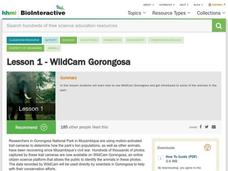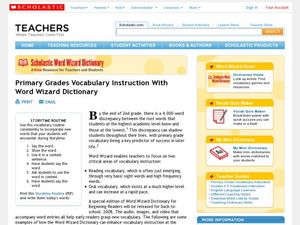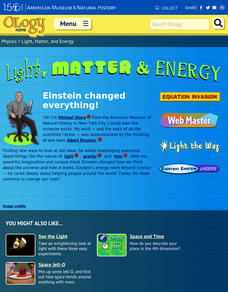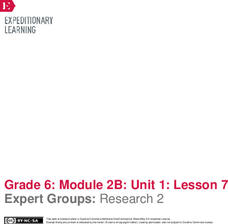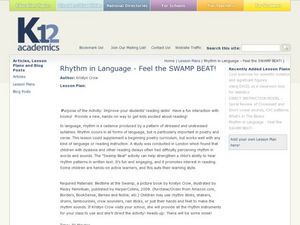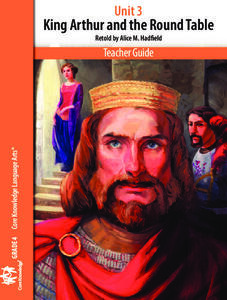Institute for the Professional Development of Adult Educators
Using Context Clues with Signal Words
When you come across an unfamiliar word in a text, do you skip it and move on? Practice using context clues to identify words you don't know with a thorough set of language arts lessons. The resource reinforces close reading and critical...
Reed Novel Studies
Lassie Come-Home: Novel Study
If only all best friends could be like Lassie! Lassie Come-Home offers a glimpse of the special relationship between man's best friend and a beloved owner. Scholars complete worksheet activities while reading about Lassie's adventures to...
Reed Novel Studies
Wolf Hollow: Novel Study
Annabelle, a young character in Wolf Hollow, discovers one bully can ruin everything when Betty walkes into her classroom. Betty bullies others and targets a war veteran. Individuals read how one person changed Annabelle's life. They...
Howard Hughes Medical Institute
Lesson 1: WildCam Gorongosa
Take a walk on the wild side! Episode one of an eight-part series of interactive lessons regarding Gorongosa National Park invites learners to become a part of the citizen science community. Scholars read a brief overview of the trail...
Curated OER
The 5 W's
Examine how to answer who, what, when, where, and why when reading text. Young writers listen to the story Skeleton Hiccups, and as a class answer and discuss the five W's. Independently they read the story silently, and write the...
Curated OER
Primary Grades Vocabulary Instruction With Word Wizard Dictionary
Elementary schoolers discover that the world is at their fingertips as they acquire new vocabulary. Several suggested activities and strategies are provided here, building new reading and oral vocabulary.
Curated OER
Using Graphology to Teach Traditional Writing
Introduce your class to the narrative, descriptive and expository forms of writing. In groups, they discuss the personality of the author while graphing the characteristics after reading different examples from the same writer. To end...
EngageNY
Author’s Read: Final Performance Task
Scholars submit their final performance task, a letter to a publisher about an athlete's legacy. As a culminating activity, they share their work with classmates in small groups.
EngageNY
Writer's Gallery and End of Unit 3 Assessment: On-Demand New Historical Fiction Narrative
Fourth-grade writers applaud their historical narrative writing pieces through a Writer's Gallery. First, they read an assigned classmate's work and leave a positive comment on a sticky note. Once learners have read a couple of people's...
Facing History and Ourselves
The World the War Made
The United States Civil War forced Northern and Southern societies, as well as the people who made up those societies, to reconstruct their vision of themselves and their identities. A series of video-based web lessons look at the great...
Bermingham City Schools
Opinion Writing
It's no secret that children can be very opinionated, but rather than fight against this natural tendency, embrace it with this primary grade writing project. After a shared reading of a children's book about persuasion, young learners...
iCivics
Lesson 3: Bias
How do journalists balance bias and ethical reporting? The final lesson in a series of five from iCivics examines the different types of bias and how they affect the news we read. Young reporters take to the Internet to find examples of...
Cold Spring Harbor Laboratory
A Half DNA Ladder Is a Template for Copying the Whole
The experiment known as one of the most beautiful experiments in biology changed the way we think about DNA. Learn about the experiment and the scientists who designed it—as well as the scientists who built on the results—with an online...
NOAA
Understanding El Niño Using Data in the Classroom
Are weather troubles caused by El Nino? An installment of a larger series presents a five-part lesson on El Nino. First, scholars learn to read sea surface temperature maps. Then, they compare them to data on graphs before determining if...
Tumblehome
Resisting Scientific Misinformation
How do scholars determine if a scientific claim is true? Learners investigate scientific misinformation by watching video clips and reading false advertising claims. They engage in discussion in both class and small group settings to...
American Museum of Natural History
Light, Matter and Energy
Let Einstein's work shine the way. Pupils read about Einstein's iconic equation, E=mc^2, using a remote learning resource and see how ideas from other scientists such as Kepner, Curie, Galilei, and Newton led to its discovery. They...
EngageNY
End of Unit Assessment: Tracing and Evaluating Arguments
Give water the attention it deserves. Scholars watch Corporations Need to Pay More Attention to Water and respond to questions as part of their end of the unit assessment. They then complete the assessment by reading and responding to...
EngageNY
Expert Groups: Research 2
Continue on. Scholars continue the research they began in their expert groups in lesson six. They read text and task cards from their research folders and share what they have gathered in research thus far. Individuals then spend the...
Curated OER
Choral Speaking: The Frog on the Log
Students recite the poem, "The Frog on the Log" paying particular attention to precise diction, pacing, projection, inflection, volume and rhythm.
Curated OER
Thumbs Up For Expert Readers!
Students use the cross check strategy to increase reading comprehension in this lesson. They listen as the teacher reads "Where the Wild Things Are." The teacher purposely reads some words wrong so that the story does not make sense. ...
Curated OER
Rhythm in Language - Feel the SWAMP BEAT!
Students explore the rhythm of words. For this reading skills lesson, students read Bedtime at the Swamp and use rhythm instruments to find the cadence in the words of the story. Students listen for rhythm in other written text as they...
Curated OER
Compound Word Frequency
First graders explore English by participating in a vocabulary activity. In this compound word instructional activity, 1st graders define what a "compound word" is and read several examples of them. Students utilize a stack of flash...
Core Knowledge Foundation
Unit 3: King Arthur and the Round Table
Over four weeks, fourth graders study King Arthur and the Round Table, retold by Alice M. Hadfield. Fifteen lessons take pupils through each chapter, complete word work, and the writing process to draft paragraphs, sentences, dialogue,...
Core Knowledge Foundation
Unit 3: Adventures of Don Quixote
Fifth graders explore the Adventures of Don Quixote in a four-week language arts unit. Scholars listen to and discuss a new chapter each day as well as examine vocabulary and practice word work including suffixes, subject-verb agreement,...




